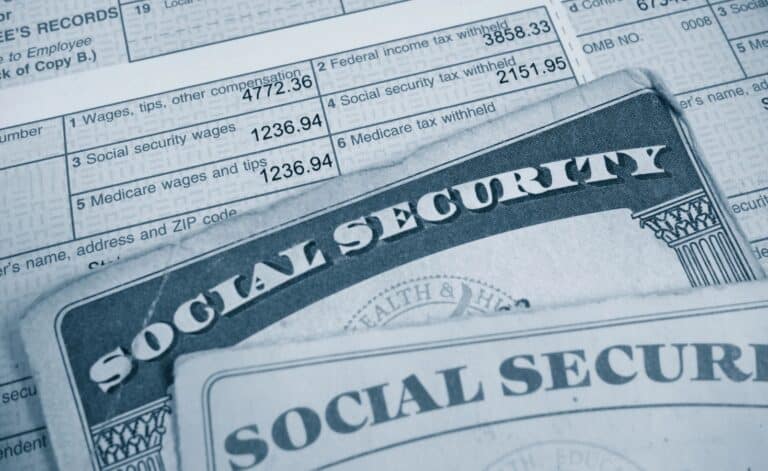11 Reasons You Should Claim Social Security Early

Deciding when to claim Social Security is often about maximizing your benefit. Financial planners usually advise delaying your claim for as long as possible to secure the highest monthly payment. Your benefit is based on your lifetime earnings, with a full payout available at your full retirement age (FRA), which is currently between 66 and 67 depending on your birth year. Claiming before FRA results in a permanent reduction in your monthly benefit, while waiting beyond FRA leads to a permanent increase.
However, the decision isn’t solely about maximizing the monthly check. Personal factors such as health, family circumstances, and financial needs can play a significant role in determining the right time to claim.
You Have Poor Health
There comes a time known as the breakeven point when starting a larger monthly payment later will eventually surpass the total benefits you’d collect from claiming early with a smaller payment.
However, this breakeven point only matters if you live long enough to reach it. If you don’t expect to live that long due to health issues, you may receive more in total benefits by claiming Social Security early. An early claim can be a good option for income and to help offset higher medical expenses, particularly for a single person who doesn’t need to consider the impact on a surviving spouse.
However, if you’re married and your benefit is much higher than your spouse’s, it could be beneficial to delay your claim to provide a larger survivor benefit for your spouse.
You Have a Job Loss
If you encounter a financial crisis like a job loss and are at least 62 years old, it might be wise to claim Social Security early. This can provide you with immediate funds to navigate the situation or even to kickstart a new chapter in your life if you no longer plan to work.
It is harder for older Americans to start a new job search.
You Have Debts to Pay
If you have outstanding debt and can’t boost your income or withdraw from savings, you might want to take Social Security payments earlier. This is particularly true if you’re facing escalating interest charges. Before you do, consider consolidating your debt and finding ways to lower interest rates. It’s also essential to address the root cause of your debt and maintain a budget to avoid falling back into debt in the future.
If you do not already have a budget, consider signing up for free budget apps such as Personal Capital which automatically create a budget for you based on your existing spending patters. You can read my Personal Capital Review and how I use the free software.
You Can’t Work And Need Income
Many workers face physically demanding jobs, with over half enduring hazardous or unhealthy conditions. These circumstances may compel them to retire early and claim Social Security for financial support.
You Are Only Working Part-Time
If you claim Social Security before reaching your full retirement age and continue to work, your benefits may be reduced if your earnings exceed the income limits for the year.
In 2024, individuals who have not yet reached full retirement age will see a reduction of $1 in benefits for every $2 earned above $22,320. For those who will reach full retirement age in 2024, the reduction is $1 for every $3 earned over $59,520 until they reach full retirement age.
However, if you’re working part-time and your earnings are below these thresholds, starting Social Security at 62 could be a viable option to supplement your income.
No One Is Dependent on Your Benefits
When you pass away, a surviving spouse, minor, or disabled child might be eligible to receive Social Security payments based on your benefits. A surviving spouse could get between 71% and 100% of your benefits, depending on their age, while a disabled child might receive 75% of your benefits monthly even after your death.
If there are no dependents who would qualify for these benefits based on your record, retiring early could be a wise choice if no one else relies on this income. If you meet the other conditions and have reached the minimum age for Social Security retirement, you might consider claiming your benefits sooner to make the most of your retirement years.
You Have Completed Your 35 Highest-Earnings Years
Your Social Security benefits are calculated from the highest 35 years of your earnings. If you’re currently in your peak earning years, continuing to work could increase your future benefits by replacing lower-earning years with higher ones if you delay claiming them.
However, if you’re working part-time or have had to retire early and won’t be increasing your average earnings, you won’t have the opportunity to boost your benefits with higher earning years. Still, by claiming benefits before reaching full retirement age, you will receive a reduced amount.
You Do Not Have Pension
A pension provides steady source of income to retirees without the volatility of stock markets.
For someone who can no longer work and lacks substantial retirement savings, Social Security may be a crucial source of income. Even if you have an IRA or 401(k) investments, relying on Social Security can help preserve your savings by postponing withdrawals during a stock market downturn.
You Want to Maximize Family Benefits
For married couples, the decision of when to claim retirement benefits isn’t solely an individual one. The work history of your partner, or lack thereof, may offer strategic options to maximize household benefits, some of which may favor early claiming.
For instance, if your spouse’s retirement benefit is much lower than yours due to lower wages or time away from work for caregiving or health reasons, they might qualify for a spousal benefit based on your earnings record. Social Security would pay them between a third and half of your benefit amount, but only after you’ve claimed it.
One strategy could involve the higher-earning spouse delaying their claim until age 70 while the lower-earning spouse claims early to start receiving some Social Security income.
Alternatively, if you can no longer work and your partner doesn’t qualify for a retirement benefit of their own, claiming early could mean a lower payment for yourself but could also activate spousal benefits for your partner, providing additional income when you need it.
You Are Worried About Social Security Solvency
As per the March 2024 Congressional Budget office report, Social Security will be insolvent in 10 years unless changes are made to shore up the fund. If you are concerned about social security funds running out, or benefits being reduced, starting social security payments as soon as you are eligible might not be a bad idea.
You Prefer To Invest On Your Own
Waiting to claim social security does increase your benefits. However, the increased amount is made up of investment gains plus mortality credits. You get more money because someone else died. Rather than waiting for the increased benefits you might have better investment options yielding more.
It is hard to beat the 8% guaranteed returns for each year you wait to claim after FRA so consult with a licensed professional.
Should You Claim Social Security Early or Not?
Claiming Social Security at age 62 instead of waiting until your full retirement age (FRA) results in a 30% reduction in monthly benefits. Conversely, for each year you postpone claiming Social Security beyond your FRA up to age 70, your benefit increases by 8%. Therefore, if you can afford to wait, it may be a more advantageous choice.
If you start claiming Social Security at age 62 with reduced benefits, your annual cost-of-living adjustment (COLA) will also be lower since it is based on your initial benefit amount.
The COLA can be particularly beneficial during periods of high inflation in retirement. By delaying your Social Security claim, you can secure a higher retirement income that is better protected from inflation.
Delaying your Social Security claim can lead to a larger benefit. Each year you wait beyond your full retirement age (FRA) to claim, your benefit increases by 8%. This can translate to a monthly benefit that’s at least 24% higher if you wait until age 70. However, consider your retirement savings, other income sources, and life expectancy when making this decision.

John Dealbreuin came from a third world country to the US with only $1,000 not knowing anyone; guided by an immigrant dream. In 12 years, he achieved his retirement number.
He started Financial Freedom Countdown to help everyone think differently about their financial challenges and live their best lives. John resides in the San Francisco Bay Area enjoying nature trails and weight training.
Here are his recommended tools
M1 Finance: John compared M1 Finance against Vanguard, Schwab, Fidelity, Wealthfront and Betterment to find the perfect investment platform. He uses it due to zero fees, very low minimums, automated investment with automatic rebalancing. The pre-built asset allocations and fractional shares helps one get started right away.
Personal Capital: This is a free tool John uses to track his net worth on a regular basis and as a retirement planner. It also alerts him wrt hidden fees and has a budget tracker included.
Streitwise is available for accredited and non-accredited investors. They have one of the lowest fees and high “skin in the game,” with over $5M of capital invested by founders in the deals. It is also open to foreign/non-USA investor. Minimum investment is $5,000.
Platforms like Yieldstreet provide investment options in art, legal, structured notes, venture capital, etc. They also have fixed-income portfolios spread across multiple asset classes with a single investment with low minimums of $10,000.






